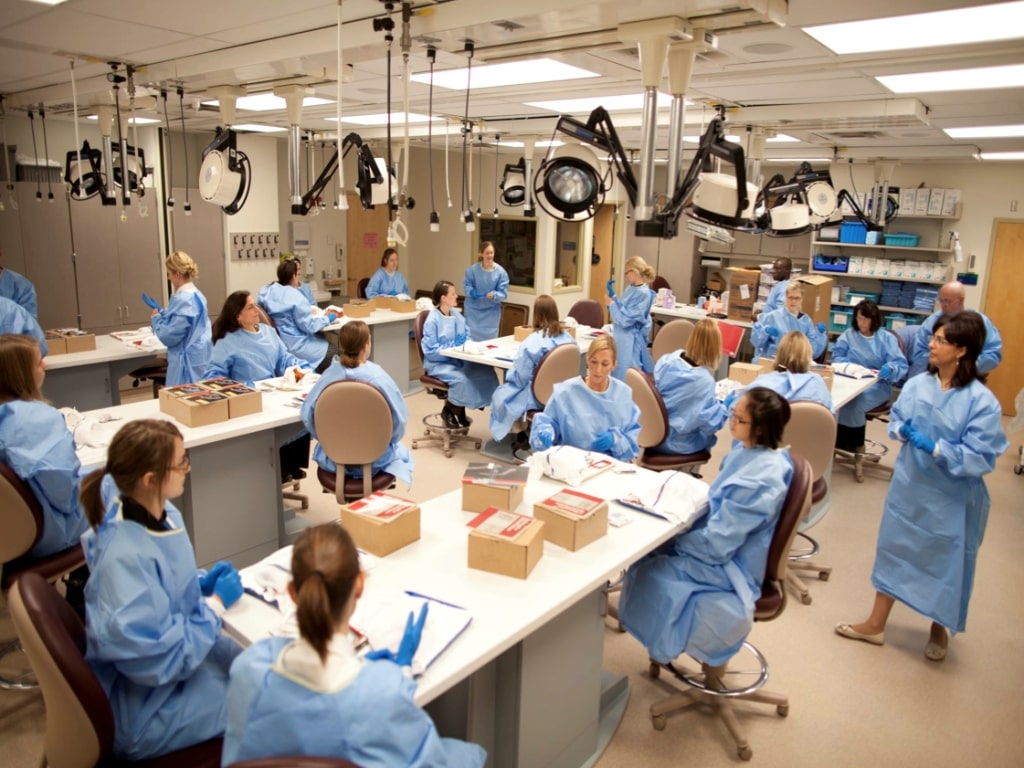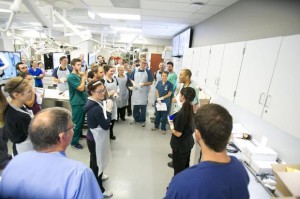Physician Assistant degrees are growing in demand as more than 60% of the health industry’s workforce are in fields that require Allied health degrees of which a Physician Assistant (PA) graduate degree being one of the most necessary in the future. With a high annual median salary of over $90K and a job outlook of over thirty-eight percent more than other occupations, the PA graduate degree has massive appeal.

| Quick Facts: Physician Assistants | |
| 2012 Median Pay | $90,930 per year$43.72 per hour |
| Entry-Level Education | Master’s degree |
| Work Experience in a Related Occupation | None |
| On-the-job Training | None |
| Number of Jobs, 2012 | 86,700 |
| Job Outlook, 2012-22 | 38% (Much faster than average) |
| Employment Change, 2012-22 | 33,300 |
Why Are Physician Assistant Graduate Degrees In Such Demand?
The Professional Environment in which physician assistants work typically are physicians’ offices, hospitals and other healthcare facilities. The direction of the Job Outlook for the profession is projected to grow thirty-eight percent from 2012 to 2022, much faster than the average for all occupations according to The Bureau of Labor Statistics. The growing elderly and general population, expanding chronic diseases and a physician shortage, will result in a higher demand for health providers, such as physician assistants. Physician Assistant ranks as one of the Top 10 Jobs In the United States by the The Bureau of Labor Statistics report 2014-15 because of salary, length of the degree program and flexibility to transition into many other fields of medicine.

What Is The Degree Program For Physician Assistants?
Physician assistants must have some experience in the allied health field prior to entering their two-year bachelor’s practitioner program. After earning a bachelor’s degree, most students complete a master’s physician assistant program — an intensive two-year degree which require candidates to familiarize themselves in specialities and expertise in wide-ranging subjects including biochemistry, pathology, pharmacology and physiology to name a few. Some students decide to take a BA-PA in conjunction with an MS-PA in an accelerated graduate degree.
Studying a broad spectrum of medical and surgical care, the knowledge retained will advance their proficiency in a broad range skills rather than one specific area of study. Graduate students master such subjects as surgery, obstetrics and gynecology, geriatrics, pediatrics, among many other fields.
Licensing and Certification
To become a certified physician assistant and be eligible for the acronym PA-C, students complete a graduate degree from an accredited, Allied health college.
What Crucial Service Can Physician Assistants Provide?
Physician assistants practice medicine under the supervision of physicians and surgeons. They are formally educated to examine patients, diagnose injuries and illnesses, and provide treatment. Physician assistants are medical providers who are licensed to diagnose and treat illness and disease and prescribe medication for patients. The PA profession is designed to be adaptable, preparing PAs to work with doctors in primary care or medical and surgical specialties and subspecialties. Because of the breadth of their knowledge, they are highly capable of providing care in emergency situations. In the primary care setting, Physician Assistants can provide almost all of the clinical services that physicians provide, including diagnosing and treating illnesses. PAs may be required to make clinical decisions and provide diagnostic, preventive and other health services.
What Communities Do Physician Assistants Offer High-level Care?
Today, thousands of people have access to quality health care because there are PAs in their communities. Physician Assistants are critical to increasing access to care for underserved patients, as they are often the only health providers in these areas. PAs made nearly 300 million patient visits and prescribed or recommended approximately 332 million medications in 2008.
In order to continue giving high-quality healthcare to patients, physician assistants graduate degree programs are essential to the healthcare industry. These graduate degrees are growing in demand — which means more PAs will be entering the workforce to assist in the physician shortage in the forecast.
**U.S. Bureau of Labor Statistics 2014-15 Occupational Outlook Handbook; Physician Assistants.
Research Contribution: A. Anderson
Photo credit:
MedSourceConsultants — Physician Assistants
PA Grad Program


 Build Meaningful Relationships
Build Meaningful Relationships
